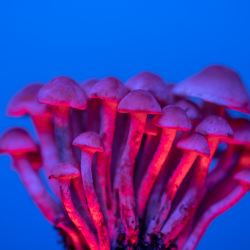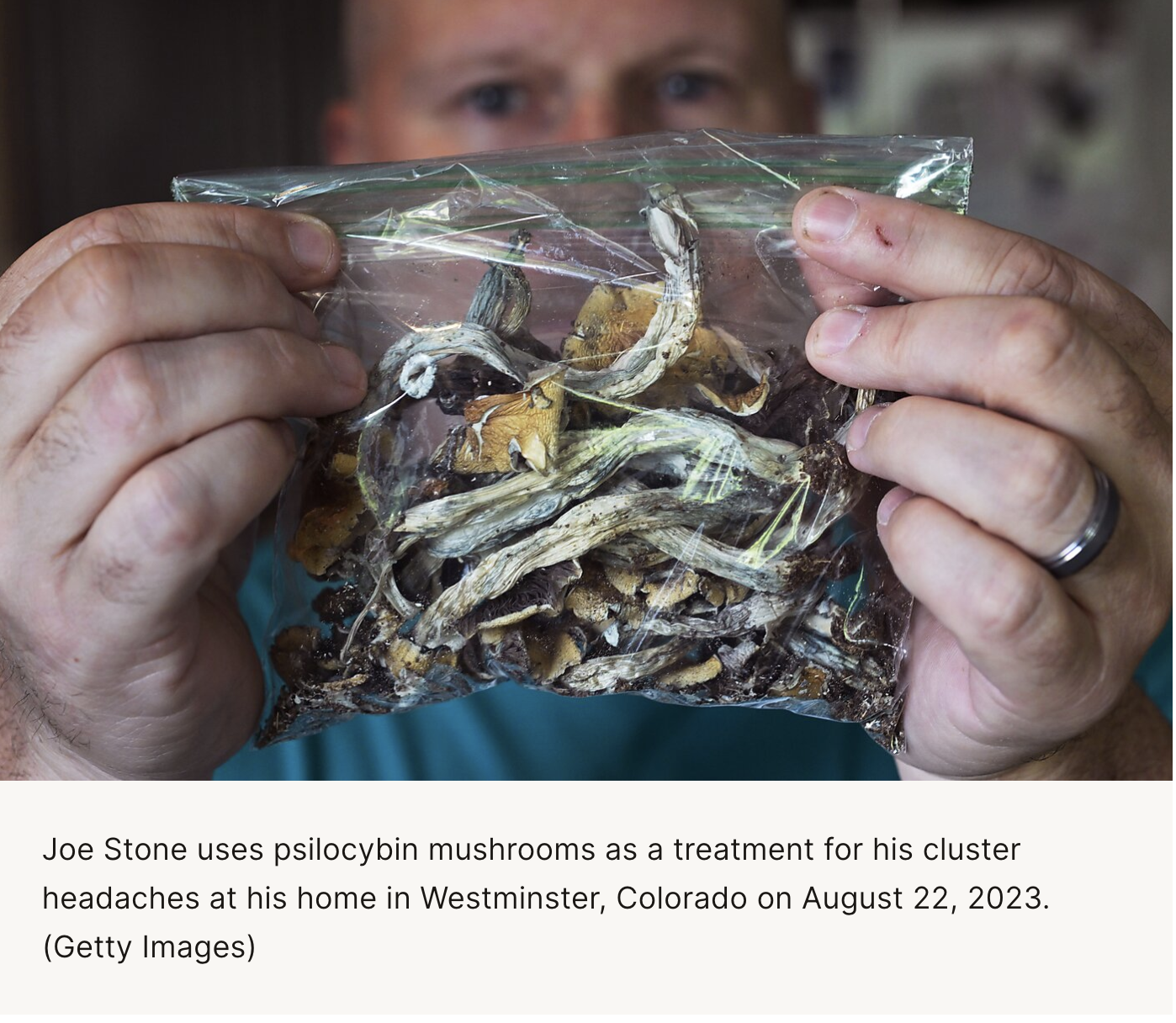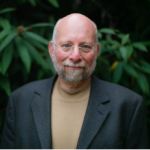“Last month, California lawmakers passed a bill that would decriminalize the personal possession of small amounts of a few plant-based psychedelics. This raised hopes that this could be the first of many reforms to unlock the therapeutic potential of psychedelics. Unfortunately, Governor Newsom vetoed the bill, citing reasons that can only be characterized as specious.”

When the California legislature passed a bipartisan bill one month ago that would decriminalize possessing and personally using certain plant‐based psychedelic drugs, I welcomed the action as building momentum toward full legalization of a class of drugs with great potential to treat depression, post‐traumatic stress disorder, addiction, and a host of other mental health disorders. Alas, over the weekend, California Governor Gavin Newsom vetoed the bill.
The legislation would have effectively allowed people to possess small amounts of psilocybin or psilocin (found in so‐called “magic mushrooms”), DMT (found in ayahuasca), and mescaline (found in peyote and other cactus plants) but explicitly would not have legalized the sale of these
products, or allowed psychotherapists or “facilitators” to administer them to people for psychedelic‐assisted psychotherapy. The bill did not decriminalize possessing ibogaine (found in the iboga shrub) or synthetic psychedelics such as LSD or MDMA.
In vetoing the bill, Governor Newsom stated:
California should immediately begin work to set up regulated treatment guidelines—replete with dosing information, therapeutic guidelines, rules to prevent against exploitation during guided treatments, and medical clearance of no underlying psychoses. Unfortunately, this bill would decriminalize possession prior to these guidelines going into place, and I cannot sign it.
The governor’s veto message is simultaneously a non sequitur and a “catch‐22.” First, the bill didn’t decriminalize psychedelic‐assisted therapy, only personal possession. So, the governor’s concerns about “dosing information, therapeutic guidelines, and rules to prevent exploitation during treatments” do not logically connect to the language or intent of the law.
Second, there is no way clinicians can develop dosing information and therapeutic guidelines for psychedelic‐assisted therapies when the drugs remain illegal and essentially off‐limits to clinical research. Yet that’s how medical science works: clinical researchers perform trials using varying doses and treatment modalities, report their findings, and thus develop and refine dosage and therapeutic guidelines.
Despite decades of clinical research providing evidence of psychedelics’ therapeutic potential, the Drug Enforcement Administration decided that psychedelics have “no currently accepted medical use.” It classified them as Schedule 1 drugs, another example of “cops practicing medicine.”
By placing psychedelics on Schedule 1, the DEA erected many regulatory obstacles for researchers wishing to conduct clinical trials that could yield information regarding the efficacy, dosage, and therapeutic guidelines of plant‐based or synthetic psychedelics. Additionally, plant‐based psychedelics, as well as synthetics such as LSD or MDMA, are off‐patent. While pharmaceutical companies can still patent the processes by which they extract or synthesize psychedelics, they have little incentive to seek DEA approval for clinical psychedelic research.

Joe Stone uses psilocybin mushrooms as a treatment for his cluster headaches at his home in Westminster, Colorado on August 22, 2023. (Getty Images)
One example of a DEA and Food and Drug Administration‐approved clinical trial is the phase 2 trial of psilocin (the active component of psilocybin found in certain mushrooms) reported in the August 31, 2023 issue of the Journal of the American Medical Association. Researchers published the results of a multi‐center, six‐week randomized, controlled placebo‐based trial with 104 adults who met diagnostic criteria for major depressive disorder (MDD). Participants were given either 25 mg of pharmaceutical‐grade psilocin or 100 mg of niacin (as a placebo) and psychological support. The researchers followed the participants for six weeks after one treatment session. The result:
Psilocybin treatment was associated with a clinically significant sustained reduction in depressive symptoms and functional disability, without serious adverse events. These findings add to increasing evidence that psilocybin—when administered with psychological support—may hold promise as a novel intervention for MDD.
This means psilocybin or psilocin combined with psychological support might eliminate the need for many patients to continually take antidepressants, many of which have side effects and require gradual tapering to avoid withdrawal symptoms. Findings like this might provide another explanation for why many pharmaceutical manufacturers lack the incentive to seek permission from federal law enforcement to conduct clinical research on psychedelics.
This is not the first time Governor Newsom struck a blow against harm reduction and drug policy reform. A year ago, he vetoed a bill that would have allowed certain state urban areas to establish overdose prevention center (OPC) pilot programs. Despite a wealth of evidence showing OPCs have reduced deaths and disease since the 1980s (New York City’s two city‐sanctioned centers saved over 1000 lives in a little over a year), Newsom echoed drug‐war zealots who criticize this proven harm reduction strategy by expressing in his veto message unfounded concerns that OPCs would encourage illegal drug use.
Meanwhile, Californians seeking psychedelic‐assisted therapy will need to travel to Oregon or Colorado. Oregon recently announced the first functioning legal system under which patients may obtain psilocybin‐assisted psychotherapy, the result of Measure 109 that Oregon voters passed in 2020. That same year, Oregon voters decriminalized personal possession of all federally-illegal drugs.
In November 2022, Colorado voters approved Proposition 122, authorizing the state to establish a regulatory system resembling Oregon’s by the end of 2024. It has the added feature of creating a “gray market” in psychedelic‐assisted psychotherapy, in which people can give away or share psychedelics and offer “services” or “support” to people who personally possess and use psychedelics independent of the state regulatory scheme. Colorado’s law decriminalizes more than psilocybin or psilocin. It also decriminalizes ibogaine, DMT, and mescaline.
As clinicians and facilitators gain experience with psychedelic‐assisted therapies in those states, the body of knowledge about dosing and therapeutic practice standards will grow organically despite a dearth of DEA or FDA‐approved clinical trials.
Several cities in the United States have also decriminalized or reduced penalties for people who possess psychedelics for personal use. The city council of Santa Cruz, California, for instance, passed a resolution in 2020 instructing local law enforcement to assign the lowest priority to enforcing laws against the personal possession of plant‐based psychedelics.
With a federal election just over a year away and Governor Newsom increasingly taking to the national stage, it is reasonable to suspect that political considerations played at least as much of a role as his stated concerns about dosages and clinical practice standards in his decision to veto the bill.
In seeking to exercise their fundamental right to self‐medicate, voters in Oregon and Colorado went around their governors and legislators by approving ballot initiatives. On the other hand, Californians relied on their representatives and their governor in Sacramento. Perhaps people in California and elsewhere will draw a lesson from this.
#Reprinted with permission. Dr. Singer's original article can be found on the Cato Institute website.
